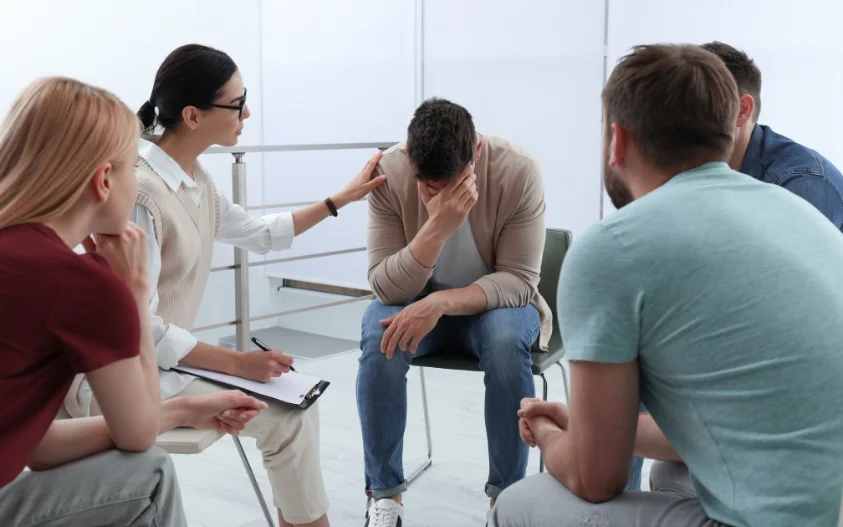24/7 Helpline:
(866) 899-221924/7 Helpline:
(866) 899-2219
Learn more about PTSD Rehab centers in Berkeley Springs
PTSD Rehab in Other Cities

Other Insurance Options

Premera

Health Net

Magellan Health

Regence

Amerigroup

PHCS Network

Meritain

Private insurance

State Farm

Cigna

Optum

Health Partners

ComPsych

Coventry Health Care

Ceridian

Ambetter

GEHA

Choice Care Network

Carleon

Aetna

Eastridge Health Systems
Eastridge Health Systems is a private rehab located in Berkeley Springs, West Virginia. Eastridge He...













